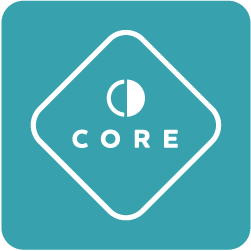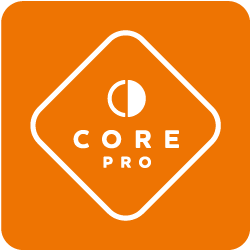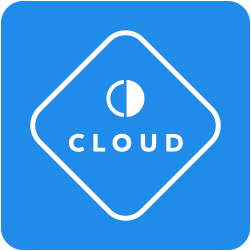
Even outside of the realm of recruitment software, there are a number of misconceptions about what it means to be ‘in the cloud’ and the advantages that may come with such a lofty position.
“In the Cloud” “Cloud Software” “Cloud Solutions” “The Cloud” might be the single most misunderstood technical-term-cum-marketing-buzzword of this decade. Before we can have any kind of sensible comparison between Cloud and Desktop based recruitment systems, we need to clarify what being “in the cloud” actually means… and what it doesn’t.
#1 Cloud as a Platform
There is a common misconception that “Cloud-based” software refers to browser-based software, and the Cloud vs Desktop debate often transforms into a debate over the relative merits of desktop applications versus increasingly popular in-browser apps. This is an interesting debate in its own right, however, at its heart is the misconception that –
Browser based software = cloud
Desktop based software = not on the cloud
THIS IS FALSE
Both browser based and native desktop recruitment applications are equally capable of interacting with a cloud-based infrastructure in much the same way that you could argue that both are equally capable of being hosted on your own on premise IT infrastructure. There’s absolutely no reason you have to sacrifice the benefits of desktop recruitment software in order to take advantage of ‘the cloud’. The two aren’t mutually exclusive.
In fact, using a desktop application has many advantages over browser based recruitment software – desktop applications are often faster, more powerful and more stable than in-browser apps, which have to render your management interface through a different application like Chrome or Internet Explorer. For similar reasons, desktop applications tend to be more secure, which is a key consideration if you’re routinely processing the sensitive sort of personal data related to the recruitment process.
That’s not to say that there is no advantage to browser-based recruitment apps. In general, you can expect a browser based solution to ‘just work’ (don’t quote us on that) without having to install and configure the application on each workstation. This means that browser based recruitment software has the potential to save the IT department a lot of installation headaches, it often makes licensing a bit easier to manage, and gives you a bit more flexibility to work from anywhere without too much messing around.
It’s also worth mentioning that – while there’s no technical reason for this to be the case – browser based recruitment software is often a lot more modern-looking and attractive than a typical desktop solution – probably because the UI can be built up in a similar fashion to a webpage. The modern looking appearance can be seductive, luring many companies to choose inferior browser-based apps over more suitable desktop recruitment software solutions.
#2 Cloud as a Licensing Model
Another popular tangent that creeps into the Cloud vs Desktop debate is:
Cloud = Subscription
Desktop = One off cost
FALSE AGAIN
Again, this is a crucial misconception – more than that, this is a false dichotomy that assumes that Cloud and Desktop sit in opposition to each other, which we have just established is not the case. In general, you can expect to see software which is hosted “in the cloud” to use a SAAS subscription model, but this is equally applicable to both desktop and so-called “web-based” software. Many recruitment manager packages and CRM solutions deploy a desktop application provided on a rental basis. This licensing model is not exclusive to browser-based packages.
#3 Cloud as Hosting Location
The premise here is:
Cloud = The IT infrastructure, database and backups are hosted by an external provider in a remote datacentre (in the cloud)
In-house = Your IT department installs, administrates and maintains the hardware to host your databases, manage your backups, compliance and security.
TRUE
What characterises a recruitment management solution as being “cloud based” is the use of remote datacentres, as opposed to purchasing, installing, maintaining your own breezy roomful of whirring servers.
So, with that in mind, let’s explore the pros and cons of these two different approaches.

Cloud Hosted Recruitment Management Software
Pros
Cloud recruitment software is initially cheaper than hosting in-house. Rather than paying a lump sum up front (and ongoing salary for the IT staff), you’re typically paying monthly costs, which is a great solution for those with a smaller budget or waiting for the new financial year.
If you’re expecting your company to grow and you’re looking for flexibility, a cloud solution allows you to scale with relative ease.
If time is of the essence for your company, cloud software can be helpful. Installation is quick and IT services are managed externally, meaning you can get on with your work without anyone interrupting to update or maintain the software – great for companies with few employees who lack the knowledge or struggle to find time to do this.
A cloud solution also means that you’ve outsourced having to worry about local storage data, backup and recovery services, and data protection regulation and compliance is someone else’s problem.
Cons
It’s not all sunshine and rainbows behind the cloud, though. If you opt for a cloud-based solution, extra subscriptions for when your business grows will induce extra costs. You can often find yourself locked in to lengthy contracts where you end up ultimately paying many multiples of the equivalent one-time fee. If your provider decides to up their fees on a whim – they can. You’ll always be dependent on the cloud provider.
Cloud software may also have its disadvantages if your company deals with incredibly sensitive data. It may be more secure to store your data on a less, ‘publicly accessible’ network. There are also some legal nuances here if you are storing data concerning EU nationals on servers outside of the EU, so check with your legal advisors before taking the plunge.
Remember, if you’re also paying for your desktop or browser-based application in a SAAS-type model, cloud hosting is often a separate consideration and a separate bill.
Recruitment Software Hosted On Premise
Pros
In theory this usually a onetime investment (IT staff, on-going hardware maintenance, hardware upgrades, software licensing and data protection compliance notwithstanding).
You also have full control; over the restrictions, monitoring, integration, managing your data, customising the development – the full works! The ball is entirely in your court here. If something goes wrong with your network connection, you aren’t stuck behind support tickets trying to get an answer, you can speak to the relevant IT staff and find out what’s going on.
If you’re in a company that handles incredibly sensitive data, then self-hosting might be ideal for you as security is potentially greater than cloud. There’s less of a danger and less worry of breaching data protection laws. That said, the onus for security and data protection is on you.
In the event that your in house hardware is in the same location as your recruitment team, you’re able to access the system without an internet connection. If you’re hard at work and the internet temporarily stops, you’re still able to continue working.
Cons
Although a onetime investment is convenient in some respects, its upfront cost is often more than a cloud software subscription as aspects like hardware, installation etc. may also be considered.
Additionally, you’ll need IT staff or outsourced IT suppliers that are skilled and knowledgeable enough that they can maintain and manage your in house infrastructure.
What’s the verdict?
Ultimately, the choice is entirely yours. It really depends on what your business priorities are, what your short and long term requirements are, and how a cloud or desktop solution will support your business growth.
Download our free eBook below and discover the 7 secrets of successful recruitment agencies.





